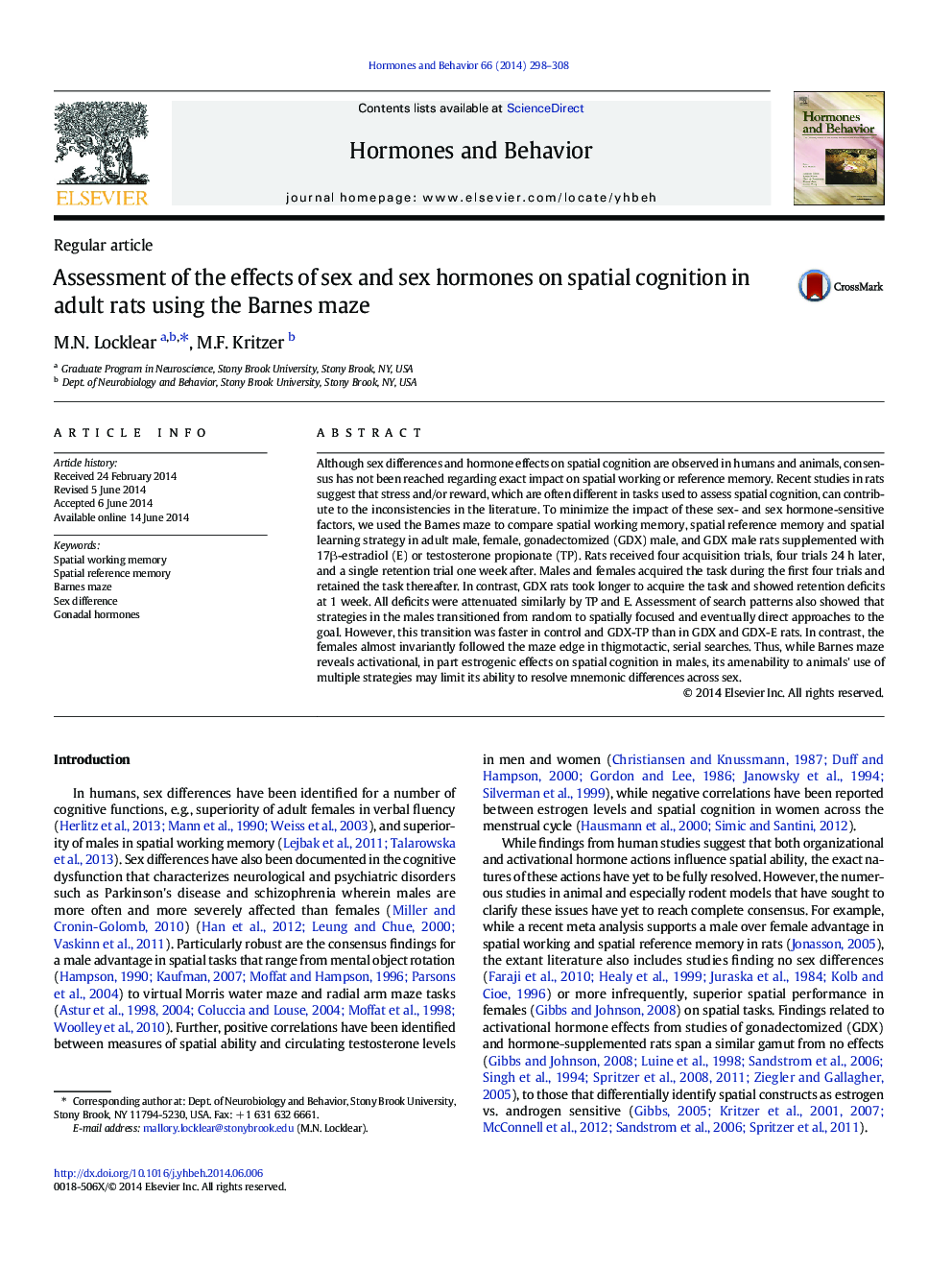| Article ID | Journal | Published Year | Pages | File Type |
|---|---|---|---|---|
| 10301055 | Hormones and Behavior | 2014 | 11 Pages |
Abstract
Although sex differences and hormone effects on spatial cognition are observed in humans and animals, consensus has not been reached regarding exact impact on spatial working or reference memory. Recent studies in rats suggest that stress and/or reward, which are often different in tasks used to assess spatial cognition, can contribute to the inconsistencies in the literature. To minimize the impact of these sex- and sex hormone-sensitive factors, we used the Barnes maze to compare spatial working memory, spatial reference memory and spatial learning strategy in adult male, female, gonadectomized (GDX) male, and GDX male rats supplemented with 17β-estradiol (E) or testosterone propionate (TP). Rats received four acquisition trials, four trials 24 h later, and a single retention trial one week after. Males and females acquired the task during the first four trials and retained the task thereafter. In contrast, GDX rats took longer to acquire the task and showed retention deficits at 1 week. All deficits were attenuated similarly by TP and E. Assessment of search patterns also showed that strategies in the males transitioned from random to spatially focused and eventually direct approaches to the goal. However, this transition was faster in control and GDX-TP than in GDX and GDX-E rats. In contrast, the females almost invariantly followed the maze edge in thigmotactic, serial searches. Thus, while Barnes maze reveals activational, in part estrogenic effects on spatial cognition in males, its amenability to animals' use of multiple strategies may limit its ability to resolve mnemonic differences across sex.
Related Topics
Life Sciences
Biochemistry, Genetics and Molecular Biology
Endocrinology
Authors
M.N. Locklear, M.F. Kritzer,
